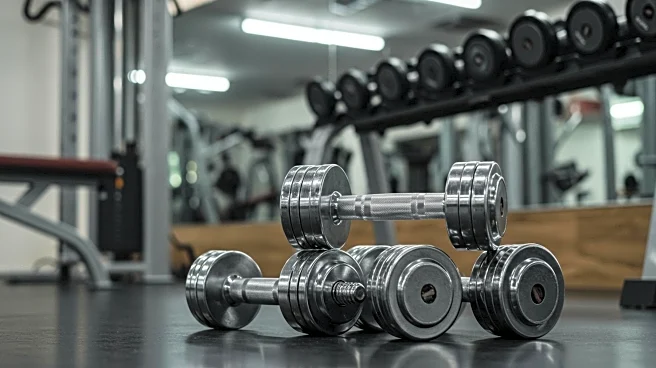What's Happening?
Ronnie Coleman, the eight-time Mr. Olympia, has made a remarkable return to the gym after a life-threatening battle with sepsis and a heart procedure. Coleman, known for his dominance in bodybuilding during the late '90s and early 2000s, was hospitalized at the end of June due to sepsis, a severe infection. Despite the challenges, Coleman has resumed his training regimen, sharing his progress on social media. He posted videos of himself performing seated rows and dumbbell shrugs, emphasizing high repetitions with lighter weights. Coleman, who now uses a wheelchair or walking stick due to numerous surgeries, expressed gratitude for the support from his fans and his wife, Susan, during his recovery.
Why It's Important?
Coleman's return to training is significant as it highlights resilience and determination in the face of severe health challenges. His journey serves as an inspiration to many, demonstrating the power of perseverance and community support. For the bodybuilding community and his fans, Coleman's comeback is a testament to overcoming adversity and maintaining a positive outlook despite physical limitations. His story may encourage others facing health issues to pursue their passions and remain active, promoting a message of strength and survival.
What's Next?
Coleman is likely to continue sharing his recovery journey and training progress with his followers, potentially inspiring more individuals to engage in fitness activities despite personal challenges. His ongoing presence in the bodybuilding community may also lead to increased awareness about health issues like sepsis and the importance of early detection and treatment. As Coleman rebuilds his strength, he may explore opportunities to advocate for health and fitness, leveraging his platform to motivate others.
Beyond the Headlines
Coleman's experience underscores the importance of mental resilience and the role of community support in recovery. His public battle with sepsis may prompt discussions about the healthcare system's approach to treating severe infections and the need for comprehensive post-recovery support. Additionally, his story may influence cultural perceptions of aging and physical fitness, challenging stereotypes about the limitations faced by older athletes.









